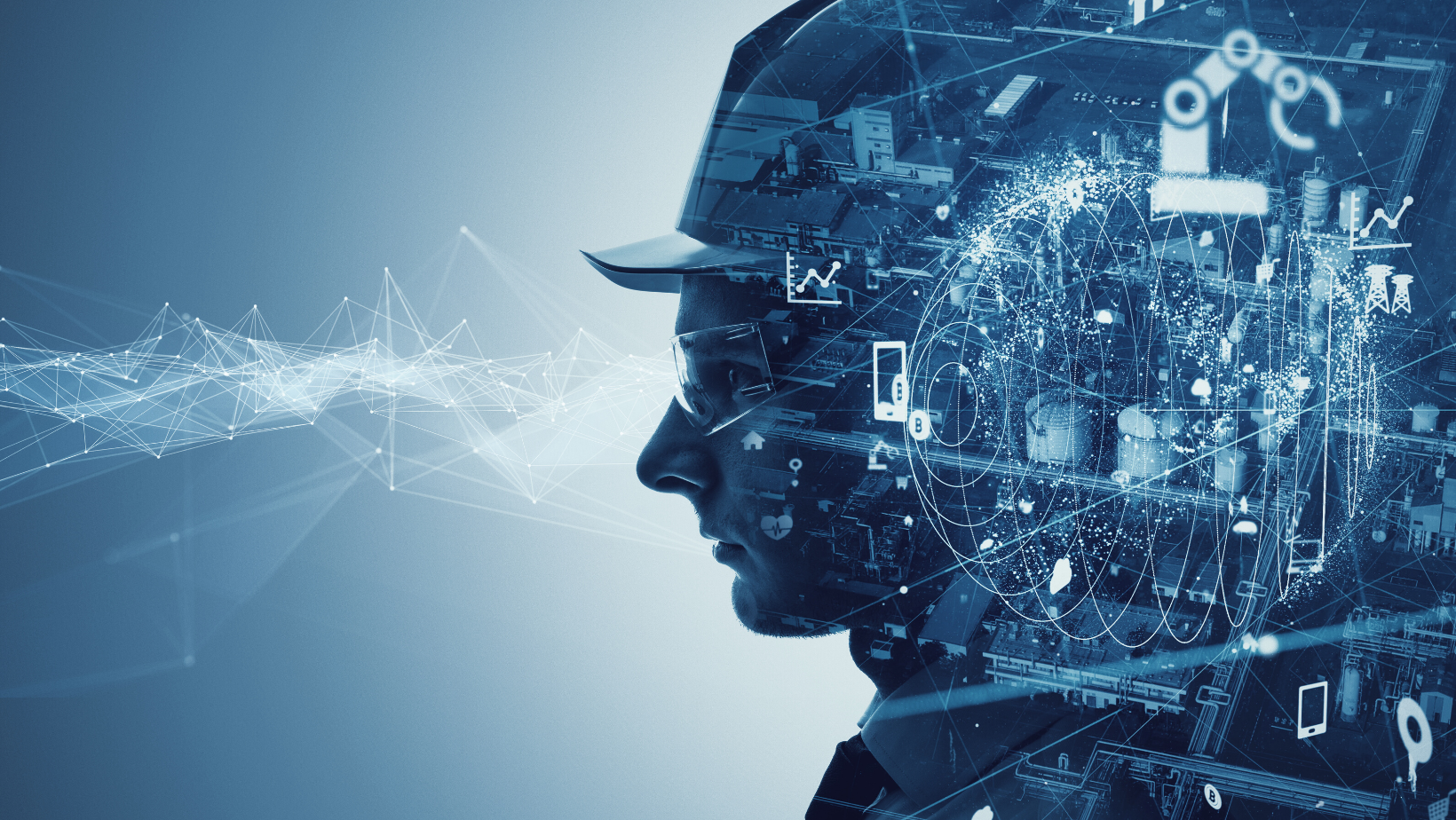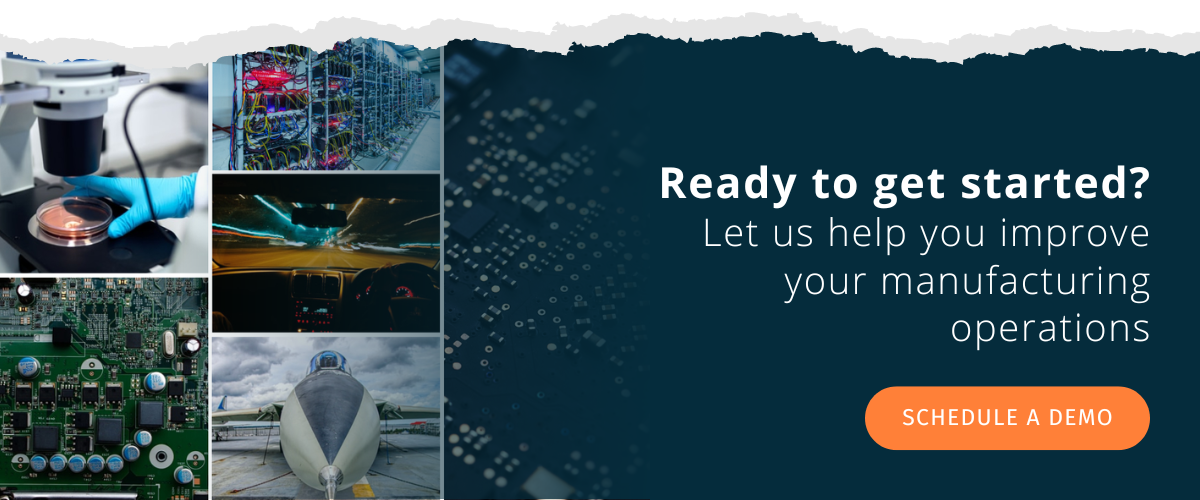How Digital Transformation is Revolutionizing Industry 4.0 in Manufacturing
Industry 4.0is the term used to describe the fourth industrial revolution. It is the fusion of...
By: Intraratio Team on Sep 11, 2023

Industrial AI, also known as AI in Manufacturing, is the use of artificial intelligence technologies to improve manufacturing processes. Industrial AI primarily leverages machine learning algorithms to analyze manufacturing data and provide insights into the manufacturing process. This can help manufacturers increase efficiency by reducing downtime, reduce scrap rates, increase labor utilization, and improve overall product quality.
In this blog post, we will take a closer look at what you need to know about Industrial AI, including industry 4.0, IoT, machine integration, and automated traceability. We will also discuss why Industrial AI matters to process manufacturers.
Industry 4.0 refers to the fourth industrial revolution that is characterized by the integration of digital technologies into physical manufacturing processes. These digital technologies include IoT devices and machine learning software based applications. With the rise of Industry 4.0, industrial AI has become a key driver in transforming the manufacturing industry.
According to a report by McKinsey, the use of AI in manufacturing can help increase productivity by up to 20%, reduce maintenance costs by up to 30%, and decrease unplanned downtime by up to 50%. The report also highlights that by 2030, AI and related technologies could generate up to $3.7 trillion in value in the manufacturing sector.
One of the critical aspects of industrial AI is machine data and control integration. By integrating machines with AI software, manufacturers can automate various processes, leading to increased efficiency and reduced costs. IoT devices play a crucial role in machine integration, allowing manufacturers to collect real-time data on machine performance and use this data to drive informed decisions.
IoT devices enable manufacturers to connect automated machines and systems that do not natively have network data and control connectivity, or have limited functionality in this regard. This data connectivity allows manufacturers to monitor their machines' performance, track production levels, and optimize processes in real-time.
By leveraging machine integration, manufacturers can automate repetitive tasks, leading to increased efficiency and reduced costs. For example, a manufacturing company can use machine integration to automate the packaging of products. By using sensors to detect when products are ready to be packaged, machines can automatically package the products, reducing the need for manual labor.
Another significant benefit of industrial AI is automated traceability. By using AI-powered systems with sensors and cameras, manufacturers can track products throughout the production process, from raw materials to finished products. This automated traceability not only improves product quality but also enhances safety and regulatory compliance.
With automated traceability, manufacturers can quickly identify and isolate any products that do not meet the required quality standards, preventing them from reaching the end consumer. This reduces the risk of product recalls and improves customer satisfaction.
By leveraging data collection from sensors and data generating machine operation software, manufacturers can monitor their production processes in real-time, identifying any anomalies that may affect product quality. For example, a sensor may detect a deviation in temperature during the manufacturing process, indicating that the product may not meet the required quality standards. By quickly identifying and addressing these issues, manufacturers can ensure that their products meet the required quality standards.
Industrial AI has already found numerous applications in the manufacturing industry. For example, a German automotive manufacturer, BMW, uses industrial AI to optimize their production processes. They use AI-powered cameras to monitor the welding process, ensuring that each weld is completed to the required quality standard. This improves product quality and reduces the risk of defects.
Another example is Airbus, which uses industrial AI to optimize their supply chain. They use predictive analytics to forecast demand, allowing them to optimize their inventory levels and reduce costs. This improves their efficiency and reduces their environmental impact.
Manufacturing Execution Systems (MES) are software systems that allow manufacturers to monitor and control their production processes in real-time.
MES systems provide manufacturers with real-time data on their production processes, allowing them to make informed decisions on process optimization. For example, a manufacturing company can use an MES system to identify bottlenecks in their production process, optimizing the process to increase efficiency and reduce costs.
A modern MES system will monitor, collect and react to IoT and machine data in real-time. By integrating AI based machine learning, MES systems can optimize production processes, identify inefficiencies, and improve product quality.
This can be further extended by integrating an MES systems with ERP and/or CRM, to provide a complete view of the manufacturing process, updating financials in realtime. And delivering data on time-to-ship with expected yield.
In summary, MES systems enable manufacturers to automate production scheduling, monitor equipment performance, track inventory levels, and manage quality control. By integrating with AI, MES systems can now optimize production processes, identify inefficiencies, and improve product quality.
The factory of the future is a concept that has emerged from Industry 4.0. It refers to a manufacturing facility that is fully digitized, with the integration of IoT devices and industrial AI (machine learning). The factory of the future is designed to be more efficient, sustainable, and agile than traditional manufacturing facilities.
The factory of the future leverages digital technologies to optimize production processes, improve product quality, and reduce costs. It integrates with other systems, including MES, ERP, and CRM systems, to provide a complete view of the manufacturing process.
While industrial AI has many benefits, implementing it can pose serious challenges. One of the significant challenges is managing the cost of implementation. Industrial AI requires significant investments in technology, including IoT devices, sensors, and software systems.
Another challenge is the complexity of integrating new technologies with existing systems. Industrial AI requires manufacturers to integrate various systems, including IoT devices, MES, and ERP systems. Integrating these systems can be challenging and may require significant resources to upgrade for compatibility.
Another key challenge in implementing industrial AI is the need for specialized skills. Manufacturers need skilled personnel who can develop and maintain the technology required for industrial AI. This can be a significant challenge for manufacturers who may struggle to find qualified personnel with the necessary skills.
To overcome these challenges, manufacturers need to develop a strategic plan for implementing industrial AI. This plan should consider the cost of implementation, the complexity of integrating new technologies, and the need for specialized skills. Manufacturers should also consider partnering with technology providers who can provide the necessary expertise and support for implementing industrial AI.
In conclusion, industrial AI is transforming the manufacturing industry, driving efficiency, and improving product quality. With the rise of Industry 4.0, manufacturers are increasingly integrating digital technologies into their processes, leveraging machine integration, IoT, automated traceability, and MES systems to optimize their operations.
By embracing industrial AI, manufacturers can improve their operations, reduce costs, and enhance customer satisfaction. With the potential to generate trillions of dollars in value, it's clear that industrial AI is not just a trend, but a critical driver of the manufacturing industry's future.
Direct connectivity to machines using a single solution to handle different data formats, protocols, and structures is the key to unlocking the power of Industry 4.0 and IoT for your business. Machine integration is the first step toward taking full advantage of these technologies.
Intraratio can help you discover the power of MES and yield management systems for your manufacturing process. Arrange now to speak with an MES expert who can guide you through the ins and outs of the right advanced solution for your manufacturing operation.
3 Key Differences Between ERP and MES Systems - The following are three crucial differences between Enterprise Resource Planning (ERP) and Manufacturing Execution Systems (MES).
Silicon Photonics: A Complex Supply Chain Requiring High Levels of Traceability - In this blog post, we will explore how traceability helps ensure the quality of silicon photonics products.
Machine data integration for automated traceability & process control - Let's dive into the details of machine integration on how it enables automated traceability and process control
Industry 4.0is the term used to describe the fourth industrial revolution. It is the fusion of...
Serialized traceability – the next phase of evolution for “track and trace” – is revolutionizing...
Industry 4.0 is upon us, and with it comes new competitive advantages and great financial returns...